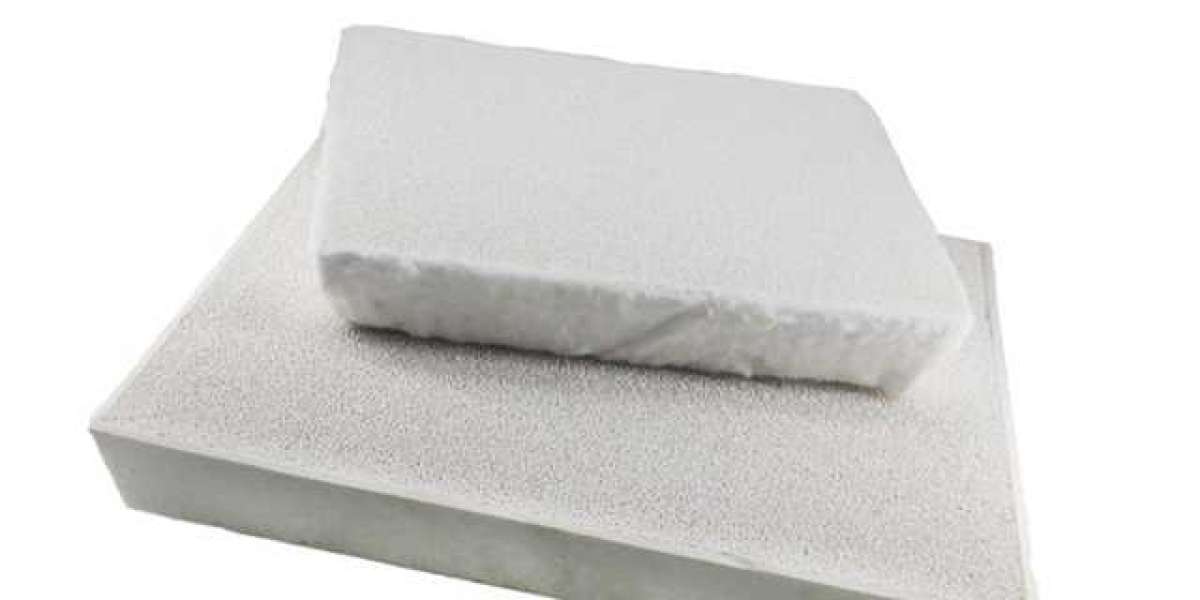Foundry Foam Ceramic Filters are produced on the basis of a carrier with a solid network structure and combined organic foam pores. The production process is as follows, the carrier is put into the thixotropic alumina slurry, and the square centering automatic extrusion process is adopted to make the slurry evenly deposited in the foam skeleton of the carrier, and dry and solidify.
The carrier is then fired at a high temperature of 1180°C to form the final product.
Ceramic Filters for Foundry are used to filter the impurities in the molten aluminum alloy, which helps to meet the production requirements of high value-added and high-tech aluminum alloy precision casting such as computer hard disks, PS bottom plates for printing, and cans.
With the development of science and technology and the improvement of the cleanliness of casting metal alloys and the performance of castings, a new type of foamed ceramic filter has been applied in casting production in the past 10 years, bringing quality to the filtration of molten metal. leap. High-quality foam ceramic filter plays a very important role in improving the quality of castings. It can effectively filter out the primary and secondary liquid and solid non-metallic inclusions in the metal melt, thereby reducing slag holes, improving the mechanical properties of castings, and reducing mechanical properties, improve casting surface finish, prolong machining tool life.
The filtering effect of the alumina ceramic foam filter depends on the pore size grade of the filter plate, the size and type of inclusions (density, wetting characteristics) and the speed of the molten metal passing through the filter plate.
Advantages of Foundry Foam Ceramic Filters
- The filter adopts the adsorption principle, which can effectively remove the large inclusions in the molten aluminum and effectively absorb the small inclusions.
- No debris falls off, effectively reducing the pollution of molten aluminum.
- Excellent thermal shock resistance, improve the erosion resistance of molten metal.
- Automatic flow production, 3 calibration procedures, accurate size, and close fit to the filter bowl.
- Improve surface appearance and performance, purify molten aluminum.



